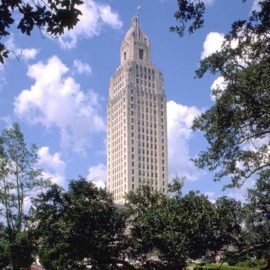
COP26 is over. The delegates are home. Eugene Robinson is not impressed.
The climate change summit of world leaders underway in Scotland has been billed as a make-or-break moment for the future of the planet. So far, I’m afraid, the smart money is betting on barely mitigated doom. The weekend’s Group of 20 meeting of rich countries in Italy, meant to be a warm-up (pun intended) for Glasgow’s main event, inspired scant confidence. “I leave Rome with my hopes unfulfilled — but at least they are not buried,” U.N. Secretary General António Guterres concluded, in a tweet that did not exactly convey unbridled joy. The G-20 nations did affirm a commitment to keep the Earth’s temperature rise to within 1.5 degrees Celsius by century’s end, which scientists say would prevent the very worst-case scenarios. But they declined to make the kinds of specific pledges that could attain this ambitious goal. And time is running out. In a later tweet Sunday, Guterres repeated the stark message he tried to drive home to the G-20 and will try again to get leaders to understand this week: “All countries need to realize that the old, carbon-burning model of development is a death sentence for their economies and our planet. We need decarbonization now, across every sector in every country.” “Decarbonization” is what we must have, and I have little doubt we’ll get it someday. But that transformation may come too late to avoid a level of global warming that climate experts agree will be catastrophic.
washingtonpost.com
Promises were made but will they be kept. The Paris climate talks showed that not all were and some not at the level pledged.
If the world’s nations keep all the promises to cut carbon emissions they made under the 2015 Paris agreement, temperatures will still rise by around 2.7 degrees Celsius (nearly 5 degrees Fahrenheit) by the year 2100, U.N. scientists estimate. That is better than the 4 degrees Celsius once projected — emissions in the United States, Europe and Japan have fallen somewhat — but still well beyond the disaster threshold. As it is, even those commitments are not being met so far. The aim of the meeting in Glasgow, called COP26, is to secure new promises to reduce emissions more rapidly — and inspire the will to actually keep them. It’s not as if the assembled leaders, including President Biden, lack incentive to act. The most visible consequence so far of our burning of fossil fuels is the deadly increase in the number and severity of extreme weather events. Mammoth wildfires in California last year turned skies an almost Martian red-orange, and this year’s fire season has been even worse. Raging floodwaters wiped out picturesque villages in Germany and Belgium, caused devastation in China and drowned New Yorkers in their basement apartments. A Siberian town north of the Arctic Circle saw a day with a high temperature of 100 degrees Fahrenheit. Tropical storms fueled by warmer seas have become slower-moving and more laden with moisture; in September, a storm named Larry retained hurricane status until a few miles south of Greenland, which it blasted with 101 mph gusts.
Biden had hoped that he could go to the meeting with solid legislation behind him. But republican intransigence and democrat infighting meant he came home to find nothing passed.
Biden had hoped to lead by example, showcasing the $555 billion in his Build Back Better spending package for the U.S. transition to clean energy. But Congress has not managed to approve that legislation, though Biden hopes a final vote might happen before COP26 is over. The United States is no longer the biggest problem, however. China is now by far the world’s top carbon emitter, thanks to the new coal-burning power plants it keeps bringing online, and President Xi Jinping is taking a pass on COP26. China argues that the warming we are experiencing is caused by carbon dioxide that wealthy countries emitted in past decades, which is true. But the carbon China is spewing into the atmosphere now will inevitably disrupt our climate and weather even more in the years to come.
There were grand performances and pledges at the end of COP26 but what will really happen?
Overall, not a pretty picture as the Glasgow summit begins. Eventually, as the impacts of climate change worsen, governments will have no choice but to enact tough and effective measures — a stiff tax on carbon, for example. But there are few indications thus far that leaders are prepared to heed Guterres’s message: The time to act radically and decisively is not 10 or 20 years from today. It is now. Or else we will spend untold billions on flood walls and barriers to hold back rising seas. We will regret the lives and property lost to fire and flood and punishing heat, the destabilization and war in places where crops will no longer grow, the migration of tropical diseases into formerly temperate zones. We will rue our willful ignorance. The leaders gathered in Glasgow have it in their power to prove me wrong. For the sake of our grandchildren, we must all hope they do.
Before COP26 Mr. Robinson was not impressed. Now that it is over and the books are closed, what will come out of it? Will the countries get to work or will we favored industries calling the shots.



